BOONE, N.C. — Field hockey brought Rachel Gaines to Appalachian State University, but academics — and the “family atmosphere” — made her want to stay.
Gaines, a senior environmental science major from Dayton, Ohio, and goalkeeper for Appalachian’s field hockey team, will graduate this summer and then begin the Master of Science in technology program in Appalachian’s Department of Sustainable Technology and the Built Environment (STBE). UPDATE: In fall 2020, Gaines began pursuing a Ph.D. at the University of Illinois.
As a transfer student from Ohio State University, Gaines described choosing her major as a long and winding path. She had switched majors several times when she signed up for an environmental studies class taught by Julia Showalter, an adjunct instructor in Appalachian’s Department of Biology.
“Everything we learned about in class motivated me to make some kind of change,” Gaines shared. “I would call my parents and tell them about the environmental impacts of power plants, and how ethanol wasn’t really all it was cracked up to be, and how hormones from pills were changing the sexes of fish in rivers and streams. I realized if I got this fired up about every topic we were learning, it was something to consider as a career.”
“Environmental science gives me a tangible way to address a myriad of world problems,” Gaines continued. “I know the research I do will have an immediate impact on the way we interact with the world. The time crunch we are under — with approximately seven to 10 years until climate change is irreversible — motivates me to get going!”
Looking forward to graduate school, Gaines said she intends to build from her environmental science knowledge and gain more hands-on experience in technical research. She has already been involved in Appalachian’s NEXUS project, led by Dr. Jeremy Ferrell, assistant professor in the STBE department.
Located at the Watauga County Landfill, the NEXUS site is a research project committed to improving the profitability of farming in the High Country and enriching the local community through the application of biomass management, renewable energy, value-added byproducts and extension of the growing season.
An athlete and a scholar
Gaines will graduate summa cum laude and was named a Distinguished Senior by Appalachian’s Department of Geological and Environmental Sciences (GES).
She said, “Being a student-athlete was one of the single biggest driving factors in my Appalachian Experience. From playing a Division 1 sport, I learned about time management, punctuality, responsibility, respect, self-discipline, leadership, teamwork, loyalty, interpersonal relationship management … the list goes on.”
“For me, working in teams is really difficult,” Gaines shared. “I’ve always been extremely independent; my parents always quote my favorite phrase as a toddler — ‘I do it myself!’— as a description of a lot of my life.”
She continued, “Playing field hockey — especially as a goalkeeper, where I literally have to rely on others to win the game — has taught me the importance of asking for help and of delegating responsibility to others, empowering them to be better teammates and leaders.”
Gaines said these lessons learned on the field contributed to her experience as part of research teams.
Part of the family
“My experience with the faculty from GES has been nothing short of phenomenal,” Gaines said. Dr. Bill Anderson and Dr. Cole Edwards — both (of whom) have connections to Ohio, like me — were pivotal in getting me involved in the department by simply connecting on a personal level. They made me feel at home. As I connected with more of my peers, I found I had a new family — my GES family.”
Gaines said her faculty adviser, Dr. Cynthia Liutkus-Pierce, professor in the GES department and director of the environmental science program, has been one of the biggest influences in her life. “She was a conduit to see the world through many different lenses,” Gaines said.
Gaines served as Luitkus-Pierce’s teaching assistant this summer. “It was an incredible learning experience to see how she interacts with her students from the other side of the podium,” Gaines said. “I’ve seen firsthand the impact she can have on someone’s experience at Appalachian, and I’m amazed by her capacity to be compassionate and disciplined simultaneously.”
Inspired by Anderson, Edwards and Liutkus-Pierce, Gaines said, ultimately, she’d like to become a professor. “I’d like to teach young people about the world around us, to continue studying the world and help save it.”
What do you think?
Share your feedback on this story.
About the Department of Geological and Environmental Sciences
Located in Western North Carolina, Appalachian State University provides the perfect setting to study geological and environmental sciences. The Department of Geological and Environmental Sciences provides students with a solid foundation on which to prepare for graduate school or build successful careers as scientists, consultants and secondary education teachers. The department offers six degree options in geology and two degree options in environmental science. Learn more at https://earth.appstate.edu.
About the College of Arts and Sciences
The College of Arts and Sciences (CAS) at Appalachian State University is home to 17 academic departments, two centers and one residential college. These units span the humanities and the social, mathematical and natural sciences. CAS aims to develop a distinctive identity built upon our university's strengths, traditions and locations. The college’s values lie not only in service to the university and local community, but through inspiring, training, educating and sustaining the development of its students as global citizens. More than 6,800 student majors are enrolled in the college. As the college is also largely responsible for implementing App State’s general education curriculum, it is heavily involved in the education of all students at the university, including those pursuing majors in other colleges. Learn more at https://cas.appstate.edu.
About the Department of Sustainable Technology and the Built Environment
One of seven departments housed in the College of Fine and Applied Arts, the Department of Sustainable Technology and the Built Environment at Appalachian State University features an integrated array of programs spanning the fields of sustainable design and technology. Its mission is to foster a strong and vibrant culture of inquiry, discovery and innovation that integrates theory with application, problem seeking with problem-solving, local issues with global perspectives and technological progress with environmental stewardship. It offers bachelor’s degrees in sustainable technology and building science, and a master’s degree in technology. Learn more at https://stbe.appstate.edu.
About the College of Fine and Applied Arts
Appalachian State University’s College of Fine and Applied Arts is a dynamic and innovative group of seven academic departments, bringing together a variety of perspectives, experiences and real-world education to provide unique opportunities for student success. The college has more than 3,500 undergraduate and graduate majors. Its departments are Applied Design, Art, Communication, Military Science and Leadership, Sustainable Development, Sustainable Technology and the Built Environment, and Theatre and Dance. Learn more at https://cfaa.appstate.edu.
About Appalachian State University
As a premier public institution, Appalachian State University prepares students to lead purposeful lives. App State is one of 17 campuses in the University of North Carolina System, with a national reputation for innovative teaching and opening access to a high-quality, cost-effective education. The university enrolls more than 21,000 students, has a low student-to-faculty ratio and offers more than 150 undergraduate and 80 graduate majors at its Boone and Hickory campuses and through App State Online. Learn more at https://www.appstate.edu.

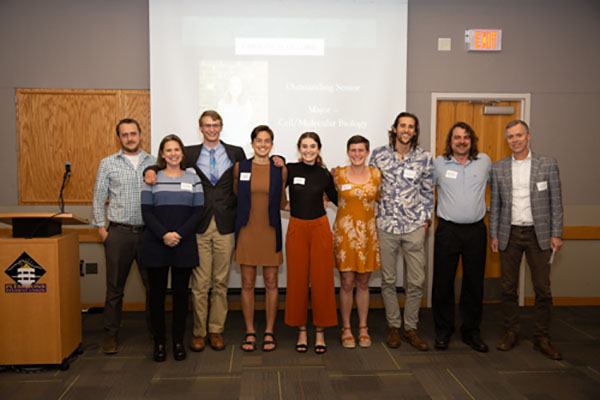
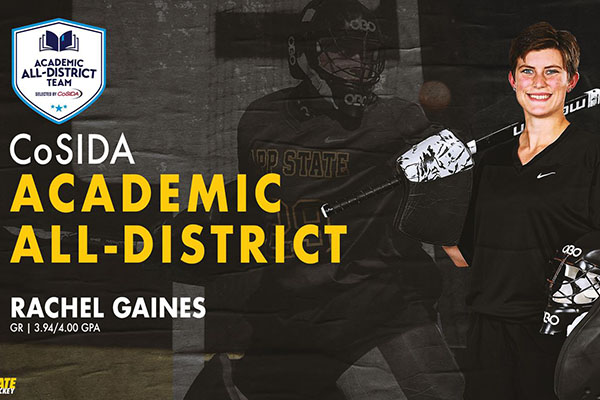
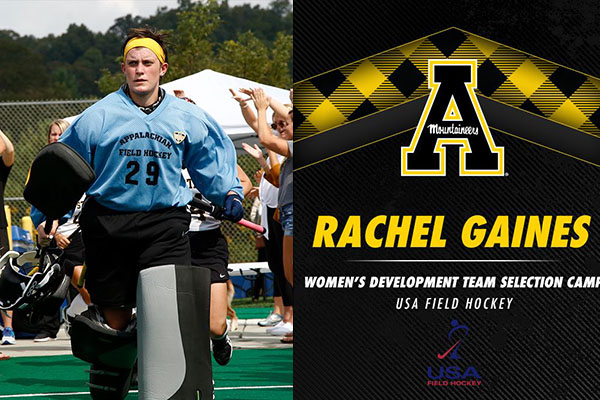
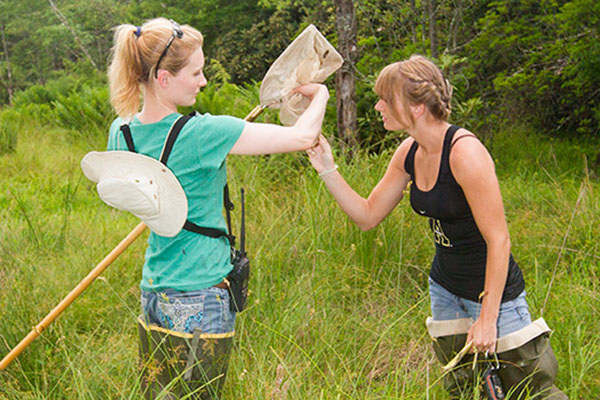
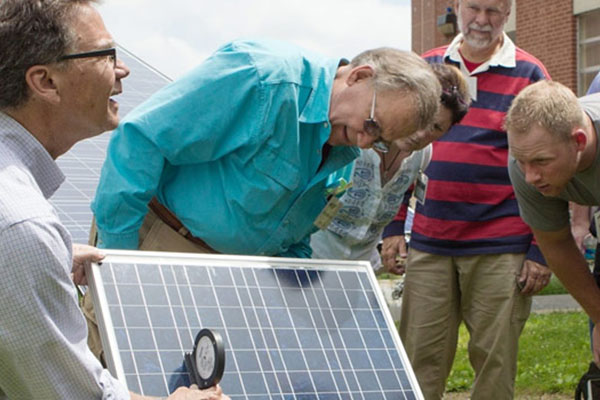




![How NCInnovation Is Rethinking Economic Development in North Carolina [faculty featured]](/_images/_posts/2026/02/rethinking-economic-development-600x400.jpg)






